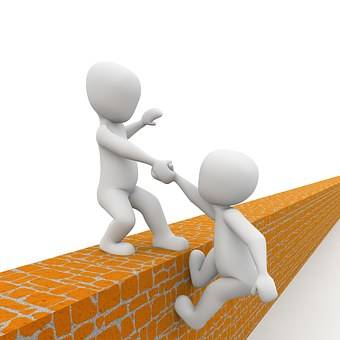Stress Getting You Down?
Watching the D-Day celebrations this week it crossed my mind how little real danger we face nowadays, compared to the “War Generation”. And yet we are all going under with stress.
Stress
Have you noticed how different people respond to the same setbacks with completely different emotions?
Angry people time find a way to get angry even if their life doesn’t really give them anything to be angry about.
Some people react to life’s inevitable difficulties by falling into sadness, even depression., while others will find a way to deal with their sadness and will use that experience to help and care for others.
These are emotional habits; these are where we go (emotionally) when life throws something unexpected at us.
Where do you go, habitually?
Anger?
Depression?
1. Start the Day Right
Every day start the day with just 10 minutes for yourself to focus on the things you are grateful for.
We all think that the opposite to fear and stress is taking a holiday.
Holidays help – in fact we all need complete rest periods – but the real opposite to stress is unexpected.
It’s gratitude.
So pick on three things and make one of them really small – the rain, the smile on the face of someone you love – Bryan Adams has (or hasn’t) brought out a new song – something really small.
Don’t just be grateful for the big things.
It takes time for your emotions to follow – just as muscles take time to develop when you lift weights – but eventually they do follow and your mind triggers something called the Reticular Activating System.
This means your mind, including your subconscious, starts to notice and focus on things to be grateful for.
Fear is physical. We are designed in such a way that a fear trigger (eg a tiger) will cause neurochemicals such as adrenaline and cortisol to surge through our body so we can get away from the thing we are afraid of.
If you think of a deer which has been startled by a predator, it will run as fast as it can, aided by adrenaline and cortisol.
But notice what happens when the danger has passed.
It stops being afraid and starts munching grass again.
But our modern lives are different; our fear triggers (money, jobs, relationships) go round and round in our head day and night.
Often for years.
But our bodies aren’t designed to have stress hormones swimming around non stop for all that time.
Gratitude is what resets our neurobiology. Over time it actually starts to switch off the adrenaline and cortisol surging through our body. It starts to emit very different neurochemicals.
Serotonin. Oxytocin.
Scientific studies (Emmons and McCullough, 2003) showed that people who keep gratitude diaries actually increase in “…determination, attention, enthusiasm and energy compared to the other groups”.
Other studies (Ng et al, 2012) showed that “found that subjects who showed more gratitude overall had higher levels of activity in the hypothalamus. This is important because the hypothalamus controls a huge array of essential bodily functions, including eating, drinking and sleeping. It also has a huge influence on your metabolism and stress levels”.
2. We all Need to Grow as Human beings.

Ancient wisdom tells us that “every day to stand guard at the door of our minds”.
In other words we need to feed our minds with healthy ways of thinking just as much as we need to feed our bodies with healthy food.
So the best way to feed our minds is to all the time be learning something new.
It could be a new language. It could be a new sport. But science is increasingly finding that constant learning has a real effect on the health of the human brain over time.
3. Strengthen your body

Fear is physical.
So is sadness. So is rage. So is emotional numbness or depression.
So when change what your body is doing – whether by a brisk walk or an intense workout – the blood flows through your arteries, brings more oxygen to your brain and body and changes your biochemistry.
Science shows how physical motion can instantly change your emotional state – Motion = Emotion!
4. Find Your Greater Purpose

We all need to serve a mission bigger than ourselves.
Something that makes pain worthwhile.
Thinking back to the D-Day veterans, they didn’t have the benefit of hindsight that we have. They didn’t know Nazism would be defeated. There was every reason to believe Germany would win (at least, before the Americans joined us!).
But they found a mission which was so much bigger than themselves that they were prepared to lay their lives down for it. They were able even to face death willingly, for the sake of that mission.
Do you have something that big in your life?
If you do, and even death doesn’t deter you, you will be unstoppable.
4. Find a Role Model.

Look for a role model for your life.
It doesn’t have to be someone famous.
Someone who has not only overcome difficulties but become stronger because of those difficulties. It will help you to raise your game; to start to see and believe what is possible. Learn what they did to overcome, and how they dealt with stress and loss.
And make a plan for your life.
No matter where you are in life, how hard it is and how few resources you have (no money? No time?) there’s always somebody who is not only worse off in life than you but someone you can help.
It’s a strange thing that we are hardwired to need to contribute.
To make a difference to others.
To matter.
When you help someone who is worse off than you are it helps you even more than it helps them. You see, that’s when you realise that not only do you have something to give and that your life can improve.
It helps you put your problems in perspective.
It also reminds you that “Life is not about ME; it’s about WE”.









